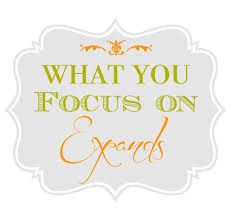Feeling Sorry for Myself
The Antidote - An Attitude of Gratitude #115

If you’ve read the newsletter for a while, you know that life threw a few curves my way the last seven years. I was a reluctant caregiver and am now a widow. I’ve moved, faced three eye surgeries, experienced knee problems due to a fall, and had loved ones move from the area. And, my body is aging - despite my best efforts.
I can - and do - easily fall into the trap of feeling sorry for myself - thoughts such as “poor me,” “I didn’t ask for this,” and “I don’t deserve this” sneak in too often. The truth - life has presented challenges, and there are many positives in my world today.
All I have to do is watch the horrific images of people in Ukraine enduring a war, the death of over 60,0000 individuals during an earthquake in Turkey, or people losing their homes during the floods in California to know how fortunate I am - sitting in a warm apartment, with my two cats and a great support system, eating daily, and experiencing excellent health.
I have a lot to be grateful for, and if I stopped looking at “poor me” and focused more on “fortunate me,” I might have a healthier outlook on life.
While I am thankful for many things, I can do a better job - I can adopt a greater
A phrase I first heard Zig Ziglar, the motivational speaker, use many years ago.
In the newsletter Prompted, the author said, “sometimes it’s better to go and find gratitude instead of sitting around waiting for it to come to us.”
His words prompted me to look further because gratitude is necessary for people wishing to age well, feel better about themselves, and be happy.
Mine had become weak lately. Besides, I believe
and I haven’t acted like it recently - maybe it’s time to rethink my position. The author of the Pleasure Report says in the article, Vitamin G:
People who practice gratitude are more likely to achieve their goals. They work out more, sleep deeper, get better grades, and perform better at work. Gratitude gives us access to happier memories and creates more loving bonds with friends. It stimulates the same pleasure network activated by a delicious meal or great sex.
She also included several ways for people to up their “G game.” My favorite is
Choose a commute — whether it is your walk to work or the trip from your bed to get coffee, make it your G-time. How good could you feel in this short time by naming all the ways you are grateful?
I can also make entries in a gratitude journal or go through the alphabet - a thru z -and name something for which I am thankful. A - is for achievement - what I accomplished in the past few years. B is for beauty, as in the beauty in nature, etc. Thanks to The FootLoose Image newsletter for this idea.
The Psychology Today website says that gratitude is
the expression of appreciation for what one has. It is a recognition of value independent of monetary worth. Spontaneously generated from within, it is an affirmation of goodness and warmth.
Brain scans of people assigned a task that stimulates the expression of gratitude show lasting changes in the prefrontal cortex that heighten sensitivity to future experiences of gratitude.
That last paragraph supports my belief - what we focus on expands. So back to the drawing board - to focusing more on what I am grateful for because I am aging well despite life’s challenges and want to remain on that path.




Bill, One of your best and your most important posts. In my experience, people who practice gratefulness daily are more resilient, thoughtful, empathetic and have more impact. Gratefulness is an important aspect of self awareness. I’ll tell you that the evidence of your own self awareness is the time, energy and passion that you put into your OMT crusade. People as experienced and accomplished as yourself don’t have to do this very difficult work........unless they care and are selfless. You certainly do and are. Grateful for you and your work.
Right on, Janice. Nothing happens TO me, everything happens FOR me, and my spiritual growth and development. When I remember that, it’s all grist for the mill ❤️😊